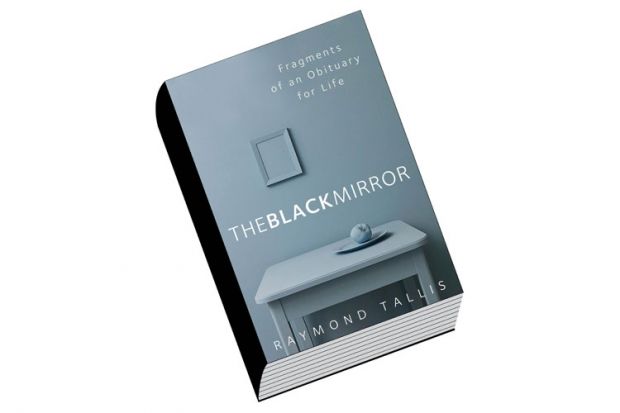Have you ever read a memoir by someone who was already dead when they wrote it? I thought not. This is, therefore, a very unusual book: a philosophical post-mortem on its author. It is written with both the detachment of a clinician – Raymond Tallis held a chair in geriatric medicine until his official retirement in 2006 – and the self-revelation of a good diarist.
It moves from an examination of what will one day be Tallis’ corpse to a catalogue of his actions in life, both voluntary and involuntary: his interests, possessions, relationships, feelings and memories, places he has known, sounds he has heard, even belches he has made. Tallis is fond of lists and is a self-confessed “hoarder of facts”, but even he admits that any such inventory is destined to be incomplete. There’s no “reliable summarizing backward glance” that can capture a life.
Which brings us to a problem. Tallis thinks about and dissects experience in a way that most of us don’t want, or haven’t got time, to do. Despite its multiple networks between people, places and things, life according to Tallis is fragmentary; there is no unifying principle or structure. One reason for this view is his atheism, even as his fluency seduces the reader into thinking his outlook is more organised than it really is. He writes wonderfully well, and has a relish for words (togethering appears quite a lot, along with artefactscope, fossicking, oligolect, sockage and many more to roll on the tongue), but sometimes they take over. Wordplay and whimsy obscure the why, or the gap left by the lack of it.
His style is genuinely entertaining, as when he delivers a great riff on the significance of the ampersand, but the risk is that, like much of everyday life, this approach allows us to avert our gaze from what he calls the “Big Story”. And Tallis doesn’t really give us a Big Story. He argues that the coherence of the world is impossible to grasp, or even to classify properly. So what we have is more a collage of elegiac, quasi-poetic descriptions, each of which has insight, but which he struggles to bring to a coherent whole.
Revealingly, Tallis says that in later life he began to feel more sympathy for hobbyists and their “pursuit of pointless perfection”. He asks whether inside every trainspotter is a sense that no final goal is ever reached, and the hobby is really a way of suppressing the “tragic sense” of life. The idea of something bigger than the present “rising above the grass blades pointing each in a different direction” is, he says, a delusion that could never amount to the “fake geometry of the lawn”. He savours the enjoyment of life, but also conveys the frustration of not being able fully to comprehend it.
Tallis is best when talking about the self, which he has long argued comprises more than just neural activity. His examination of what it is/was to be “RT” is illuminating. In The Kingdom of Infinite Space, he meditated on the self-portrait of a head as represented by a reflection in a mirror. Here, he meditates on his whole body and the aggregation of his life experiences (which don’t and can’t add up to an overarching narrative) and their interaction with his own consciousness and identity, his “inner flame”. There’s a strain of self-indulgence here, but it’s very engaging all the same.
That other super-intelligent, super-articulate atheist, Christopher Hitchens, wrote a book called Mortality that was published posthumously. Tallis has opted to do it before his demise, and seeing him enjoy himself is itself enjoyable. But despite his claim that he is only an exemplar, and that the argument is more anthropological than autobiographical, there’s really no one like RT. That fact is both this volume’s strength and its limitation.
Jeremy Holmes is chief operating officer, Universities UK.
The Black Mirror: Fragments of an Obituary for Life
By Raymond Tallis
Atlantic, 352pp, £17.99
ISBN 9781848871281 and 9781782397397 (e-book)
Published 7 July 2015
后记
Print headline: Staring death in the eye




